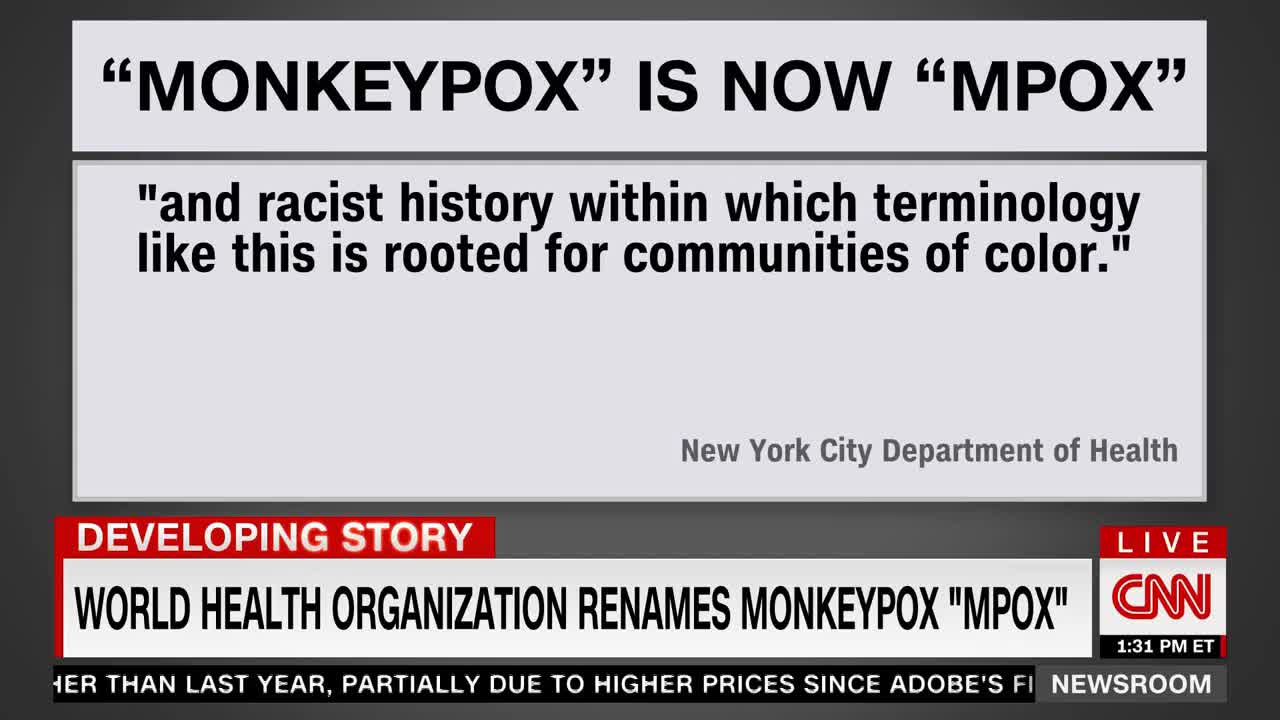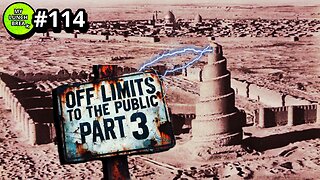Premium Only Content

CNN anchor praises WHO for renaming monkeypox as ‘mpox:’ 'Definitely makes sense to change the name'
CNN anchor Ana Cabrera on Monday praised the World Health Organization (WHO) for changing the name of the monkeypox virus in order to be more culturally sensitive.
CNN senior medical correspondent Elizabeth Cohen reported how the monkeypox virus will now be referred to as the "mpox."
She said the "interesting" and "sad" reason for the name change was because "there is a concern that monkeypox, that the word engendered stigma."
"What the New York City Department of Health said was, look, we're joining others expressing serious concern about using the word monkeypox, given the stigma it may engender and the painful and racist history within which terminology like this is rooted for communities of color," she added. "Just another note that monkeys have nothing to do with this virus, it's really a misnomer. So it's now mpox."
Cabrera agreed, saying, "Yeah, it definitely makes sense to change the name. Monkey has nothing to do with it."
The WHO released a press release on Monday that announced the name change.
"Following a series of consultations with global experts, WHO will begin using a new preferred term 'mpox' as a synonym for monkeypox. Both names will be used simultaneously for one year while 'monkeypox' is phased out," the statement read. "When the outbreak of monkeypox expanded earlier this year, racist and stigmatizing language online, in other settings and in some communities was observed and reported to WHO. In several meetings, public and private, a number of individuals and countries raised concerns and asked WHO to propose a way forward to change the name."
According to the announcement, there will be a transition period of one year to avoid confusion caused by the name change.
However, the CDC still refers to the disease as "monkeypox," and noted how monkeys had a role in the virus’ history.
"Monkeypox was discovered in 1958 when two outbreaks of a pox-like disease occurred in colonies of monkeys kept for research," the CDC website states. "Despite being named ‘monkeypox,’ the source of the disease remains unknown. However, African rodents and non-human primates (like monkeys) might harbor the virus and infect people."
"Previously, almost all monkeypox cases in people outside of Africa were linked to international travel to countries where the disease commonly occurs or through imported animals," the CDC website states.
Politico reported that the name change to "MPOX" earlier in November came in response to "growing pressure from senior Biden officials, who privately urged WHO leaders to change the name and suggested the U.S. would act unilaterally if the international body did not move quickly enough."
The article specified "the Biden administration for months worried that the virus’ name was deepening stigma — especially among people of color."
-
 1:03:41
1:03:41
Man in America
15 hours agoAre Trump & Musk the COUNTER-ELITES? w/ Derrick Broze
61.4K33 -
 3:45:08
3:45:08
DLDAfterDark
5 hours ago $8.37 earnedDLD Live! SHTF Handguns! Which Would You Choose?
34K2 -
 1:50:38
1:50:38
Mally_Mouse
8 hours agoSaturday Shenanigans!! - Let's Play: Mario Party Jamboree
44.6K -
 1:13:00
1:13:00
Patriots With Grit
12 hours agoWill Americans Rise Up? | Jeff Calhoun
36.4K13 -
 14:55
14:55
Exploring With Nug
12 hours ago $10.67 earnedWe Found Semi Truck Containers While Searching for Missing Man!
53.8K7 -
 27:57
27:57
MYLUNCHBREAK CHANNEL PAGE
20 hours agoOff Limits to the Public - Pt 3
117K62 -
 38:07
38:07
Michael Franzese
13 hours agoLeaving Organized Crime and Uncovering Mob in Politics: Tudor Dixon and Michael Franzese
97K15 -
 2:42:54
2:42:54
Jewels Jones Live ®
2 days agoAMERICA IS BACK | A Political Rendezvous - Ep. 111
76.9K48 -
 8:47:33
8:47:33
Due Dissidence
1 day agoLIVE: Workers Strike Back Conference ft. Chris Hedges, Jill Stein, Kshama Sawant, and More!
116K58 -
 8:36:37
8:36:37
Right Side Broadcasting Network
5 days agoLIVE REPLAY: CPAC 2025 Day Three with President Donald J. Trump - 2/22/25
459K102